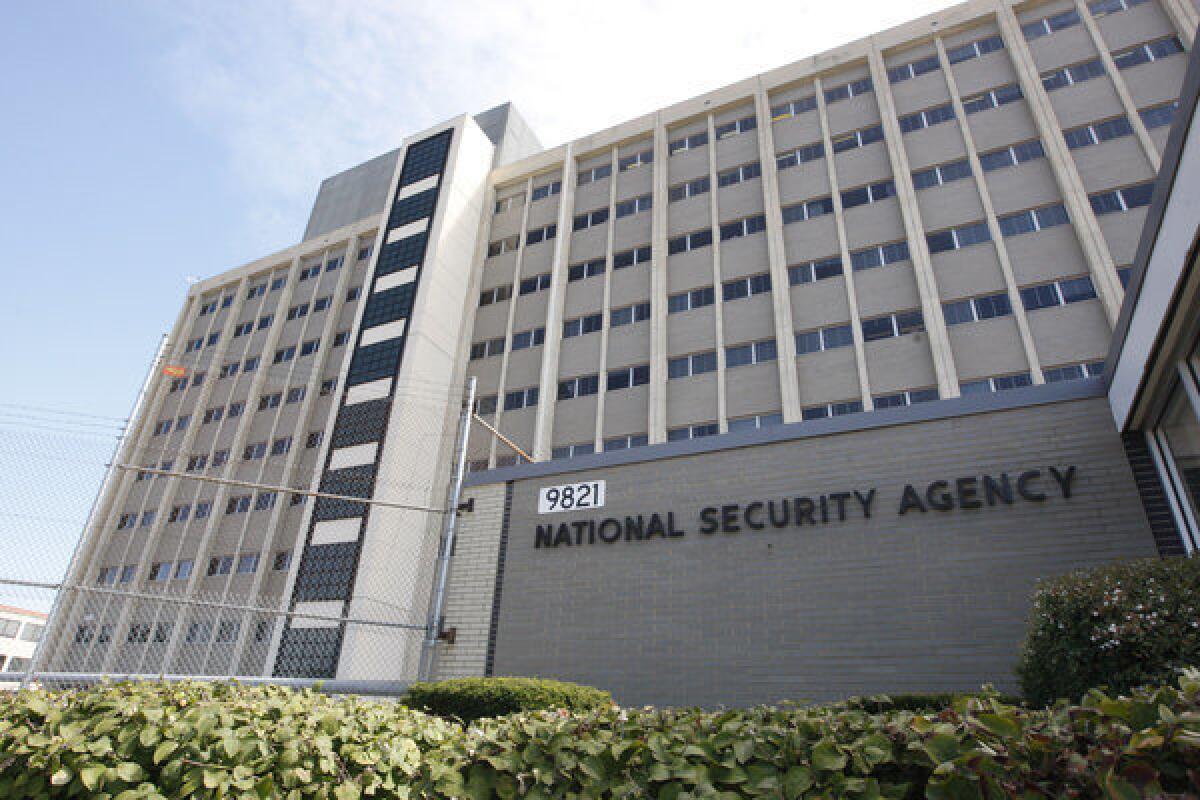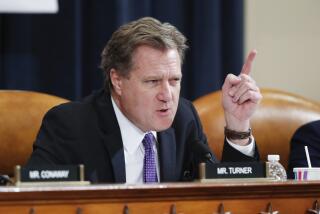Senators introduce bill requiring greater disclosure of NSA programs

WASHINGTON – A bipartisan group of senators is introducing new legislation that they say will provide greater transparency of National Security Agency surveillance programs, the first significant legislative response to the revelation of the highly classified telephone and Internet data-collection programs.
The bill, written by Sen. Jeff Merkley (D-Ore.) and Sen. Mike Lee ( R-Utah), would end the “secret law” governing the programs, the sponsors say, requiring the attorney general to declassify opinions from the secret federal court overseeing surveillance to show how broadly the government views its legal authority under the Patriot Act and Foreign Intelligence Surveillance Act.
Co-sponsors include Sen. Patrick Leahy (D-Vt.), chairman of the Senate Judiciary Committee, and Sen. Ron Wyden (D-Ore.), a member of the Senate Intelligence Committee who has raised concerns about tactics that could infringe on Americans’ privacy rights.
“Americans deserve to know how much information about their private communications the government believes it’s allowed to take under the law,” Merkley said in a statement. “There is plenty of room to have this debate without compromising our surveillance sources or methods or tipping our hand to our enemies. We can’t have a serious debate about how much surveillance of Americans’ communications should be permitted without ending secret law.”
Separately, Sen. Rand Paul (R-Ky.) has introduced what he calls the “Fourth Amendment Restoration Act” that he says would prevent the kind of data-mining he says is being employed. In an op-ed Tuesday in the Wall Street Journal Paul said he’s also looking into a class-action lawsuit to overturn FISC decisions.
“I will take the fight all the way to the Supreme Court if necessary,” Paul wrote.
The new legislation comes amid a debate about the extent to which members of Congress had been briefed about the details of the NSA programs. In his first public comments after details were leaked to the Guardian newspaper, President Obama said that “every member of Congress has been briefed” on the phone data-collection program and noted it had been reauthorized by bipartisan majorities multiple times.
But senior lawmakers have said there were elements that had not been fully explained. Sen. Susan Collins (R-Maine), who until this year served as ranking member of the Senate Homeland Security Committee, said Monday that full briefings were limited to the leaders of the intelligence committees in the House and Senate, and the leadership of both parties in both chambers.
“I did not have access to this highly compartmentalized information,” she said. When asked if she requested fuller details, she answered: “How can you ask when you don’t know a program exists?”
Sen. Dianne Feinstein (D-Calif.) said that each time the programs were brought to the Intelligence Committee for reauthorization there was a “very heated discussion.” But ultimately, she said, the committee voted to continue them with significant majorities.
She said Monday that she was “not adverse” to looking at ways to change the programs to acknowledge privacy concerns, but could not say what those changes might include.
This week all members of the House and Senate will have access to briefings by administration officials on the programs. The House will be briefed Tuesday night, and the Senate on Thursday. Separately, the House and Senate Intelligence committees will also have their regular meetings. NSA director Keith Alexander will attend the closed House meeting Tuesday.
Wyden is also calling for new public hearings on intelligence-gathering tactics. In a statement Tuesday he said Americans “have the right to expect straight answers from the intelligence leadership,” a reference to an exchange he had earlier this year with Director of National Intelligence James Clapper when he asked about whether Americans’ data were being collected.
In an interview with NBC News, Clapper said he “responded in what I thought was the most truthful or least most untruthful manner, by saying, ‘No.’”
Follow Politics Now on Twitter and Facebook
Twitter: @MikeMemoli
More to Read
Get the L.A. Times Politics newsletter
Deeply reported insights into legislation, politics and policy from Sacramento, Washington and beyond. In your inbox three times per week.
You may occasionally receive promotional content from the Los Angeles Times.







